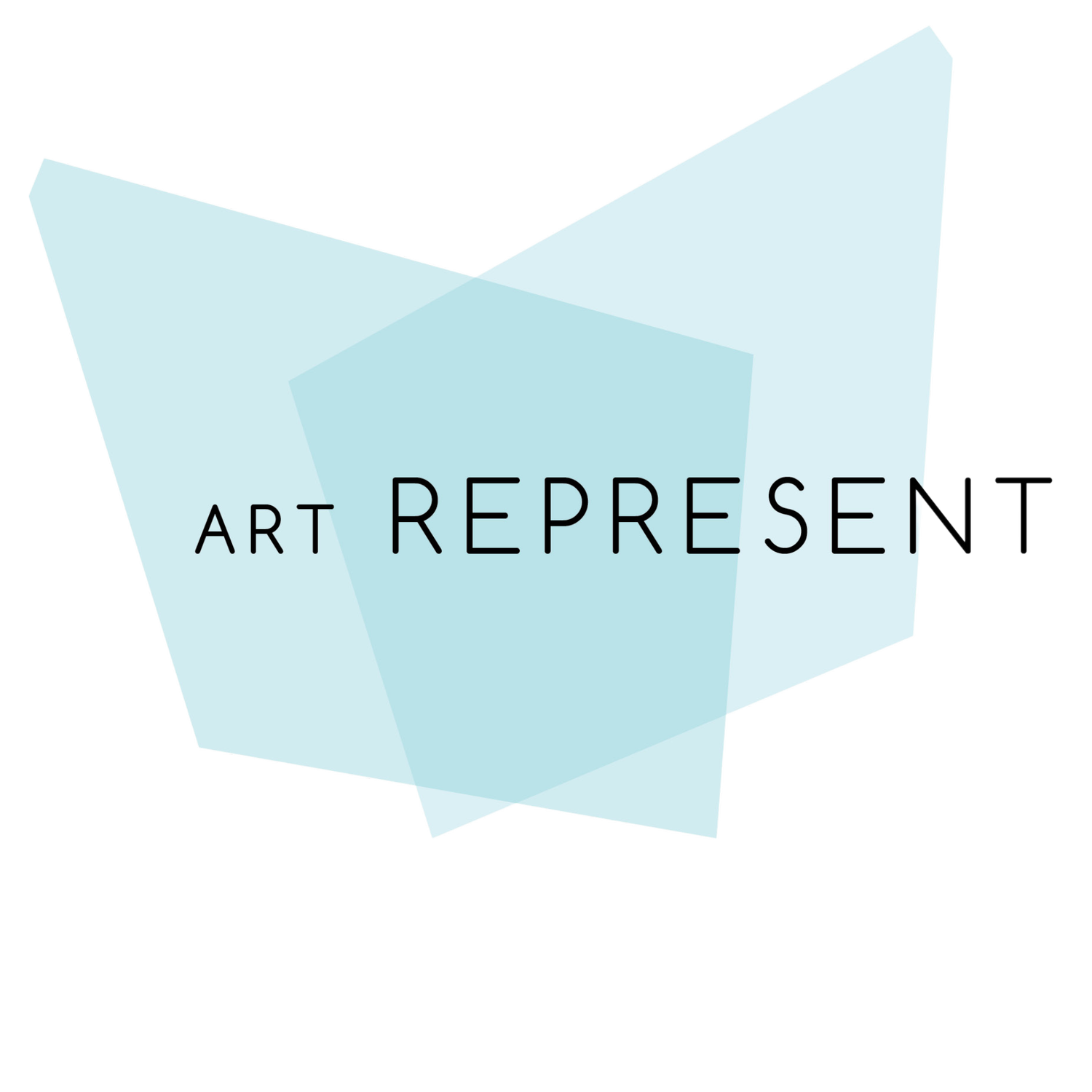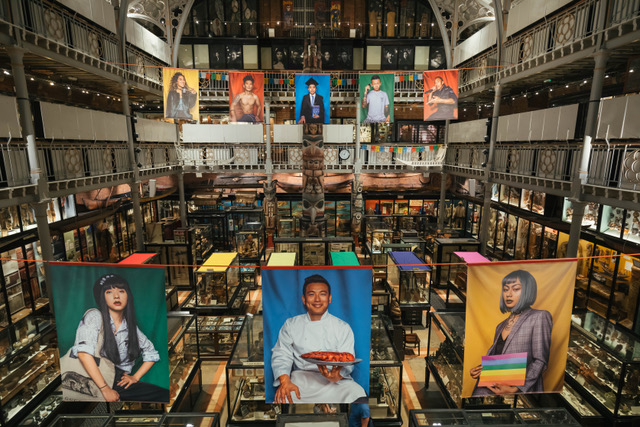February 9 marks the anniversary of the Iranian Revolution or the Enqelāb-e Eslāmī. We hear from our collaborating artist, Firouz Farman-Farmaian about his practice. Highlighting in particular, his work Enghelâb ( Revolution ), in complete alignment with ongoing events in his home country.
Dear Friends,
We’re really excited to reach out to you after a very productive few months to give you some updates on what we’ve been up to!
As ever, we are focused on expanding Art Represent's vision and mission to include new approaches to supporting and empowering our artists. As we continue to grow our Creative Impact Programme (CIP), our goal is to develop initiatives and collaborations which connect our artists to education, the sciences & technology sectors. In the midst of global turbulence and uncertainty, it’s more important than ever for us to work collaboratively towards common goals & values that can shape more compassionate and resilient global communities.
With that in mind, we are happy to share below some of our upcoming projects and collaborations, present exciting opportunities to get involved in our work, fun reads & more. We hope you enjoy reading and learning about the important work we do!
In the next instalment of our Artist Interview Series, Art Represent intern Jonathan Reissinger interviews Noor Bahjat.
Born in Damascus, Syria in 1991, Noor Bahjat now lives and works in the United Arab Emirates. Bahjat studied at the Faculty of Fine Arts, the University of Damascus from which she graduated with honours.
Hugo Viana (Bogotá, 1973) and Alejandro Viana (Ibagué, 1976) are plastic and visual artists from Colombia. Together, they have developed a collaborative artistic production, using various media such as drawing, painting, sculpture, multimedia installations and in situ spatial interventions. In their works, Hugo & Alejandro probe the aesthetic boundaries of contemporary art through the use of anthropological symbols. ‘Our artwork is a blurred trace of images reflecting the immanence of the world. With our works we wish to capture a single instant of empathy: always intangible, ephemeral, changeable and eternal’.
Alaa is a London-based visual artist, designer and creative facilitator. Alaa has worked with various creative and educational organisations as a facilitator delivering workshops to children and adults. Throughout her various roles, her work always seeks to emphasise the value of using creativity as a pedagogical process to address and explore larger issues such as identity, faith and race and the intersections between them.
At Art Represent, we have realised over the years that when audiences actively engage with our artists and artworks, there is a tangible shift in their understanding of that artist and their community. From shifting perceptions away from stereotypes to bringing awareness of a particular region, the social impact of art is evident and powerful.
In 2015, we collaborated with multimedia artist, Maria Kulikovska, to hold her first solo exhibition in London after the annexation of Crimea which rendered her a refugee overnight. Through her artwork, Maria protested against the Russian invasion and the brutalities of war. As with so many conflicts around the globe, peace is seldom permanent and war is often protracted. Today, the entirety of Ukraine is facing an existential threat and violent atrocities, whilst Maria is once again displaced - this time with a baby girl in tow.
On this year’s International Women’s Day, I am so happy to announce Mishelle Brito as my Co-Director and Art Represent’s COO.
There are many reasons why someone might start a business, but there is only one reason why someone stays with it. The reason to keep going, especially when the path of entrepreneurship feels like an endless uphill journey, is that the business they started is personal. The passion and desire to see it exist in the world is what sustains a founder through the unknown.
Getting to know the new COO Mishelle Brito…
I want to spotlight countries, regions, and communities around the globe that are not often talked about (or forgotten), especially by Western media. More importantly, highlight the people behind the “conflicts'' sharing their stories and experiences including the effects conflict has had on their lives.
HOW CAN WE IMPROVE DIVERSITY AND HELP DRIVE POSITIVE SOCIAL CHANGE?
It’s not just the art world dealing with these very same intrinsic issues right now. The same conversations are happening in other sectors so there’s lots to be learned from each other.
AN INTRODUCTION TO VIOLETTE BULE’S "ECHO CHAMBER”
BY SURPIK ANGELINI - CURATOR / FOUNDING DIRECTOR TRANSART FOUNDATION FOR ART AND ANTHROPOLOGY / HOUSTON
Jacques Derrida sees the myth of Narcissus and Echo as the relation between light and speech. He goes on to explain that according to the myth, Echo and Narcissus are cursed by blindness. A blindness that cannot render “otherness” beyond self reflection in a pool of light… a blindness that does not render a distinct voice beyond spoken repetition.
On the outskirts of Cairo, the government has an ambitious plan to build a new capital. A sprawling landscape of half-constructed condos and skyscrapers - a competition between concrete and desert. The large billboards milestoned along the motorway advertising luxury compounds, shopping centres and corporate headquarters; New Cairo... coming soon.
The American University in Cairo hosted the annual Tällberg Conference this year and I was honoured to have been invited as a part of this unique delegation of participants. With the AUC's impressive new campus situated in New Cairo, we gathered in the imagined future of an ancient civilisation.
WE OFTEN DISCUSS THE IDENTITY OF A MINORITY GROUP IN PUBLIC DISCOURSE AS IF IT’S HOMOGENEOUS BY VIRTUE OF BEING IN OPPOSITION TO THE MAJORITY.
When discussing contemporary Tibetan identities, we have to take the responsibly to look at each concept individually and question the framework of "identity" as a whole.
W.E.B. Du Bois coined the term “double consciousness” at the turn of the last century in an essay that discusses the experience of African Americans in the US. In the essay, Du Bois identified the feeling of having an identity that’s been splintered into several parts — of “always looking at one’s self through the eyes of others, of measuring one’s soul by the tale of a world that looks on in amused contempt and pity.”
The last thing you want to picture when you think of your pussy is Donald Trump. But “grab them by the pussy” has now become a phrase that will forever stalk the lexicon of popular culture. Before the president of the United States bragged about his sexual harassment of innocent women, the war between the patriarchy and pussies had already been quietly brewing for longer than anyone would like to admit.
From the mass treatment of “hysteria”, to female genital mutilation, to banning abortions, our pussies and everything to do with its pleasure and reproductive purposes have been under attack long before Trump brought his tiny hands anywhere near one. However, the fact that the leader of the world’s largest democracy is a “pussy grabber” is a seriously dangerous declaration of an outright war against pussies and everything it stands for.
On International Women's Day 2016, we are incredibly excited to announce Art Represent's upcoming art initiative Flowers of Democracy (FoD) with our artist Maria Kulikovska. The FoD will be Part I to Kulikovska’s first solo show in London. Part II – 9th May – will open on the 9th May in our space in Bethnal Green.
Gili Karev is an independent curator/writer from Tel Aviv. Together with her fellow curator and supported by Art Represent, she is realising the exhibition 'The Roar of Waters'. Inspired by the poetry of renowned Israeli poet and political activist Dahlia Ravikovitch. Here is her day in the life.
BiBi is a female Nigerian artist, proud of her African heritage. An autodidact, she has been schooled by life and her travels, creating artworks which are a product of her experiences. She employs a combination of different styles, media and processes for each piece, depending on where she draws her inspiration from. Here is her day in the life.
Juliet is the head of Artist Liaison at Art Represent, but is involved in many other aspects of the business next to that. See what she is up to in this 'day in the life' blog post!
2015 was a year of so many firsts for Art Represent, and what a year it's been.
It was only in December 2014 that I had the idea to create a designated platform for artists affected by conflict and social upheaval, a decision influenced greatly by my interactions with some fantastic artists from my homeland, Tibet. By January 2015, we began devising a sustainable, ethical business model that would offer artists the fair arrangement they deserve, without limiting Art Represent's impact.
At Art Represent, our recent exhibition of prints by displaced Syrian artist Imranovi underlined the brutal cost of conflict on Syria’s people, and the role that art can play as a form of activism. Whilst Imranovi’s works focus on the role of the Assad regime as the driving force for what has since unfolded in his homeland, the Institute for Digital Archaeology’s project instead sends a powerful message to those attempting to fill the power vacuum in Syria: that their attempts to erase both history and cultural memory will not succeed.
Over 30 artists from all over the world have already signed with Art Represent, but we are always looking to expand that group with more talent, and what better time to introduce you to some of our new faces than at the beginning of the new year. Their profiles and artworks will be available online in the upcoming weeks, so keep an eye out for them!





















